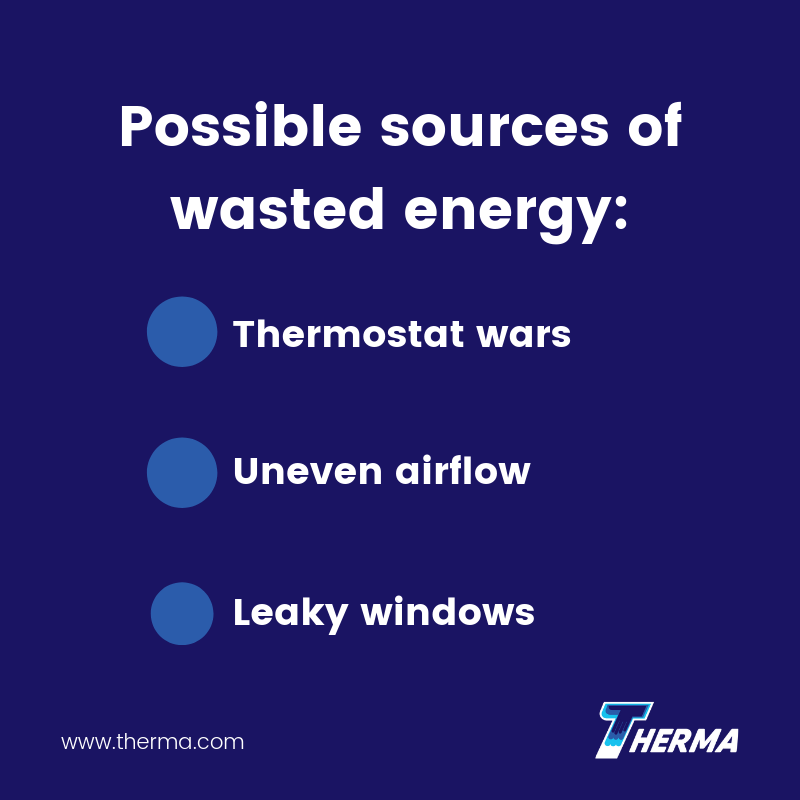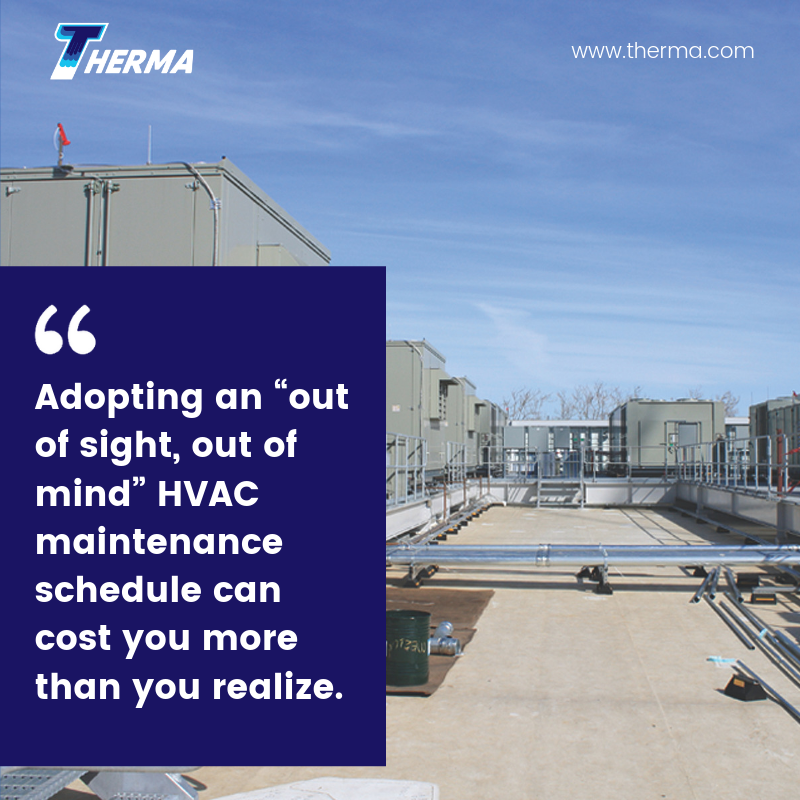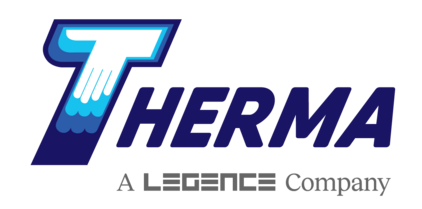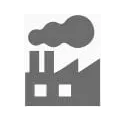HVAC systems account for most of a building’s energy costs, with some estimates as high as 60%. Heating and cooling air are energy-intensive processes requiring multiple temperature and pressure changes. There are many ways to lower an HVAC system’s impact on your bottom line. The key is energy efficiency.

Companies can take advantage of low- and no-cost tactics to maximize their energy savings by making their HVAC equipment more energy-efficient. HVAC-related energy savings depend on improving mechanical efficiencies, understanding how and when the system is being used and the type of maintenance program followed.
Can A HVAC System Help Us Save Energy?
HVAC equipment depends on specific ranges of temperatures, pressures and fluid flow rates in order to heat or cool the air in a building. Reduced fluid flow and leaks slow the heat transfer process by altering the temperatures and pressures that the equipment can maintain. Take stock of your current system, paying close attention to the following items that could impact heat transfer rates:
–Microbe colonies or scale formation in tubes create unnecessary resistance, slowing down water or refrigerant flow.
–Dust and grime on coils act as an insulator, limiting heat transfer.
–Air leaking into the system can collect inside tubes and reduce the volume of refrigerant vapor available for transferring heat.
–Oil leaking into the refrigerant changes the temperatures and pressures required for evaporation or condensation.
–Leaky ducts and poor insulation could mean heating or cooling air is lost before it reaches a desired area.
–Even a dirty air filter will alter your HVAC system’s ability to reach or maintain the desired building temperature.
Energy Efficiency – Beyond Equipment

Thermostat wars, cold and hot zones, uneven airflow, leaky windows, night-time arctic temperature settings–the equipment in your HVAC system isn’t the only contributor to energy costs. Just as you audited your equipment for inefficiencies, consider how your building and employees may be adding to your energy costs inadvertently.
–Consider when you need an area to be heated or cooled. Settings for peak and non-peak use are usually very different.
–Talk to staff about where they feel hot or cold zones. Are those with sunny windows in control of the thermostat, freezing out employees working in cubicles way in the back? How can you break up the current system so that it isn’t competing with multiple space heaters? How space is used can change over time, and an HVAC system designed for a different set-up may need some tweaking.
–Moving shelves or adding vents between offices may help with uneven airflow.
–Replacing weather stripping can reduce the impact of outside temperatures on your HVAC settings.
Next Steps To Save Energy
Once you have improved to save energy of your HVAC system with these inexpensive techniques, consider taking additional steps.
Automation and Controls
Smart thermostats aren’t the only automation improvements available. Internet of Things (IoT) controls can use data from networked sensors both inside and outside of a building. It can be used for everything from humidity control and damper settings to valves and variable control fans. Controllers for individual equipment in your HVAC system can not only automate the process for greater efficiency, but some may provide data that warns of potential problems.
Maintenance

Adopting an “out of sight, out of mind” HVAC maintenance schedule can cost you more than you realize. According to a brief from the Institute for Building Efficiency, a poorly maintained HVAC system can use up to 60% more energy. On the other hand, properly maintaining the same system can cut overall energy use by 10 to 20%.
The most cost-efficient maintenance plans are predictive and reliability-centered maintenance. These types of maintenance programs monitor equipment to catch problems before they lead to damaged equipment or outright failures. Reliability-centered maintenance takes it a step further by including root cause analysis and a dedication to improving equipment reliability. While both types of maintenance require more knowledgeable personnel and time up front, the payoff is a more energy-efficient HVAC system and less unplanned downtime.
Even with the best maintenance plan possible, equipment failure happens, especially as HVAC systems age. Consider this another opportunity to make your building more energy-efficient. If possible, upgrade the piece of equipment rather than replacing in kind. Investing in more efficient equipment can help you conserve energy and reduce costs.
To start your energy savings with low- and no-cost measures, find out where you can make the most of improvements in HVAC efficiency by reviewing potential issues with system components. Once you know the state of your equipment, work with employees to identify issues within the building and workspaces. Use a solid maintenance strategy, equipment upgrades and automation to further increase energy savings for years to come.
References:
- Fact Sheet: IBE Energy Savings from Maintenance. Institute for Building Efficiency.
- O&M Best Practices – A Guide to Achieving Operational Efficiency (Release 2.0). Pacific Northwest National Laboratory
- 6 Sustainability Tips for Commercial HVAC That Also Save Money. PG&E.
- HVAC Maintenance Tips to Reduce Costs. Grainger.
- HVAC Efficiency Controls Could Mean Significant Savings. Energy.gov.
- Building Automation Systems Are Changing The HVAC Controls Landscape. HVACSchool.org.







